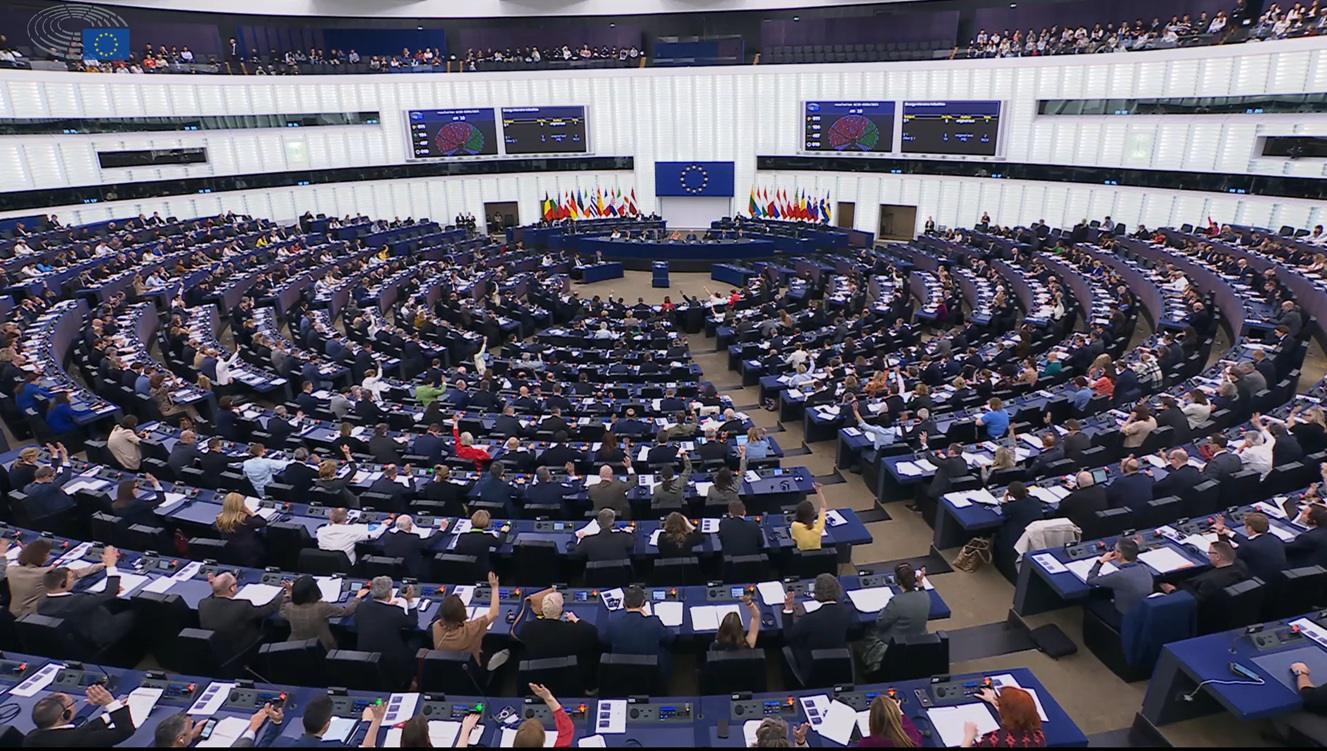EU Lawmakers Reject EUDR’s Country Risk System in New Setback to Deforestation Regulation
Lawmakers in the European Parliament voted on Wednesday to reject a benchmarking system categorizing countries by their level of deforestation risk, marking a potential new setback for the new EU Deforestation Regulation (EUDR), aimed at ensuring that products imported to or exported from EU markets no longer contribute to deforestation and forest degradation globally, including concerns that the law could again be delayed.
The EUDR was initially introduced by the EU Commission in November 2021, with proposals aimed at effectively banning deforestation-linked products on the EU market, and establishing strong compliance requirements for companies providing or utilizing key commodities and products such as palm oil, beef, timber, coffee, cocoa, rubber and soy, in addition to some of their derived products, such as leather, chocolate, tires, or furniture.
Under the new rules, companies that want to place relevant products on the EU market, or export them, will face mandatory due diligence rules, including a requirement to trace the products back to the plot of land where it was produced, to prove that the products were produced on land that was not subject to deforestation after 2020, and are compliant with all relevant applicable laws in force in the country of production.
The regulation includes a benchmarking system that classifies countries according to the level of risk of producing commodities covered by the scope of EUDR that are not deforestation-free. The classification system impacts the compliance obligations under the regulation, with sourcing from low-risk countries, for example, allowing for more simplified due diligence requirements from operators and traders.
A motion brought by the European People’s Party (EPP), and subsequently approved by a majority of MEPs, however, argued that the benchmarking system suffered from a series of flaws, including the use of outdated data that “does not accurately reflect the current realities in the countries concerned,” and that it “fails to consider key real-world factors, most notably current land-use dynamics and forest degradation,” which would result in some member stated being placed in higher risk categories.
The motion also stated that the inclusion of only three risk categories – low, standard, and high risk – by the EUDR was “insufficient to adequately differentiate between countries with vastly different levels of deforestation risk.” Notably, the EPP had succeeded in integrating a new “no-risk” category in Parliament’s negotiating position on the EUDR last year, although the category did not make it into an agreement between Parliament and the European Council. The agreement did, however, delay the implementation of the law by a year, with the EUDR now becoming applicable for large companies in December 2025, and for micro- and small enterprises in June 2026. The Commission had proposed the delay, noting that “several global partners have repeatedly expressed concerns about their state of preparedness,” and adding that even within the EU, “the state of preparations amongst stakeholders in Europe is also uneven.”
In a statement released after the motion passed, the EPP again called for the introduction of a “no risk” category in the EUDR.
Alexander Bernhuber MEP, who tabled the objection on behalf of the EPP, said:
“The Commission’s list misrepresents the situation in many countries and creates unnecessary burdens for farmers, foresters, and industry. The EPP Group remains committed to responsible forest stewardship and to policies that combine environmental protection with workable solutions for those who care for and rely on forests. Therefore, a new ‘no risk’ category must be introduced for countries with stable or expanding forest areas. This is how we make EU rules more fair and effective.”
Environmental groups expressed concern that the vote could further set back action on deforestation. In a statement released following the vote, Greenpeace noted that “it is virtually impossible that the Commission could produce a new methodology for classification of countries ahead of 30 December 2025,” which would again cause the regulation’s implementation to be delayed.
Greenpeace Forests Campaigner Sigrid Deters said:
“We are aware that the Commission’s regulation has shortcomings, but the Commission has committed to review it in 2026. In the meantime, the EUDR must be applied by operators and enforced by competent authorities, according to the agreed schedule.”





